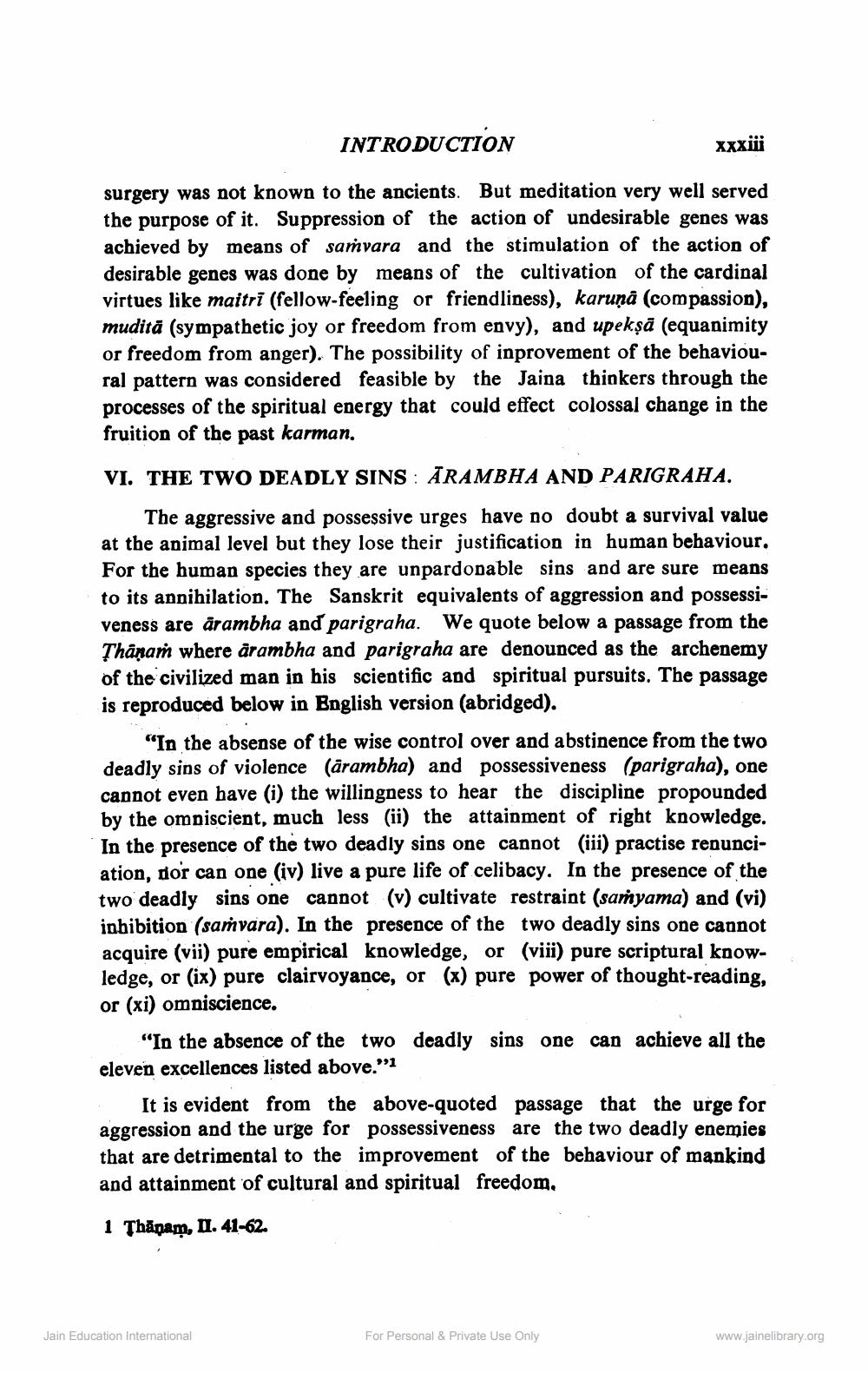________________
INTRODUCTION
xxxü
surgery was not known to the ancients. But meditation very well served the purpose of it. Suppression of the action of undesirable genes was achieved by means of samvara and the stimulation of the action of desirable genes was done by means of the cultivation of the cardinal virtues like maitri (fellow-feeling or friendliness), karuna (compassion), mudită (sympathetic joy or freedom from envy), and upekṣā (equanimity or freedom from anger). The possibility of inprovement of the behavioural pattern was considered feasible by the Jaina thinkers through the processes of the spiritual energy that could effect colossal change in the fruition of the past karman.
VI. THE TWO DEADLY SINS : ĀRAMBHA AND PARIGRAHA.
The aggressive and possessive urges have no doubt a survival value at the animal level but they lose their justification in human behaviour. For the human species they are unpardonable sins and are sure means to its annihilation. The Sanskrit equivalents of aggression and possessiveness are ärambha and parigraha. We quote below a passage from the Thanam where arambha and parigraha are denounced as the archenemy of the civilized man in his scientific and spiritual pursuits. The passage is reproduced below in English version (abridged).
"In the absense of the wise control over and abstinence from the two deadly sins of violence (ärambha) and possessiveness (parigraha), one cannot even have (i) the willingness to hear the discipline propounded by the omniscient, much less (ii) the attainment of right knowledge. In the presence of the two deadly sins one cannot (iii) practise renunciation, nor can one (iv) live a pure life of celibacy. In the presence of the two deadly sins one cannot (v) cultivate restraint (samyama) and (vi) inhibition (saṁvara). In the presence of the two deadly sins one cannot acquire (vii) pure empirical knowledge, or (viii) pure scriptural knowledge, or (ix) pure clairvoyance, or (x) pure power of thought-reading, or (xi) omniscience.
"In the absence of the two deadly sins one can achieve all the eleven excellences listed above."
It is evident from the above-quoted passage that the urge for aggression and the urge for possessiveness are the two deadly enemies that are detrimental to the improvement of the behaviour of mankind and attainment of cultural and spiritual freedom
1 Thāṇam, 11. 41-62
Jain Education International
For Personal & Private Use Only
www.jainelibrary.org




